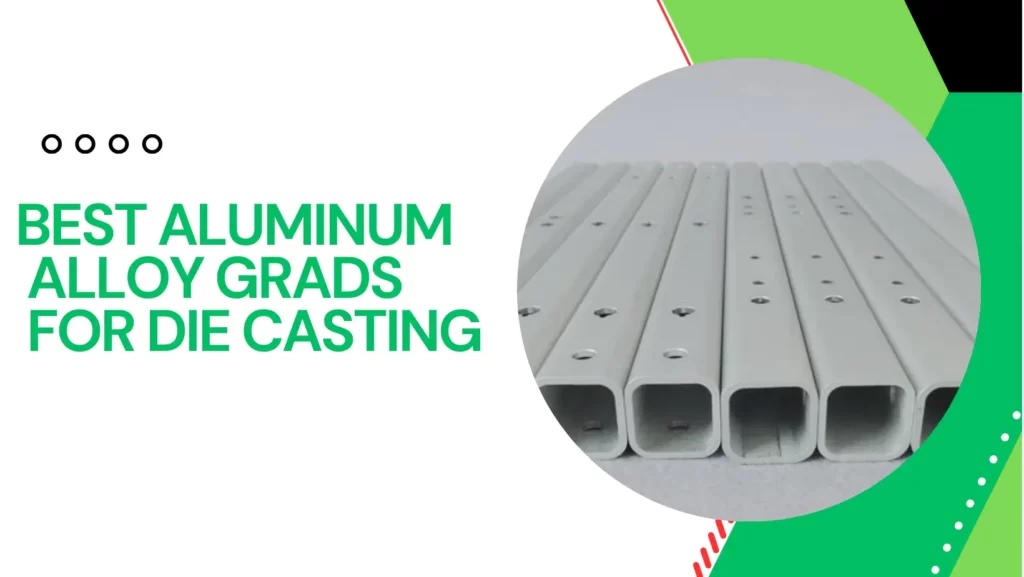Alcast Company for Dummies
Alcast Company for Dummies
Blog Article
An Unbiased View of Alcast Company
Table of ContentsThe Of Alcast CompanyThe Facts About Alcast Company UncoveredAlcast Company Fundamentals ExplainedExamine This Report about Alcast CompanyAlcast Company Fundamentals ExplainedEverything about Alcast Company
The refined difference hinges on the chemical web content. Chemical Comparison of Cast Light weight aluminum Alloys Silicon promotes castability by lowering the alloy's melting temperature and enhancing fluidness throughout spreading. It plays a crucial duty in allowing intricate mold and mildews to be loaded properly. In addition, silicon adds to the alloy's strength and put on resistance, making it important in applications where resilience is crucial, such as automotive parts and engine components.It additionally enhances the machinability of the alloy, making it simpler to process into completed products. This way, iron contributes to the general workability of light weight aluminum alloys. Copper raises electric conductivity, making it useful in electrical applications. It likewise boosts rust resistance and contributes to the alloy's overall stamina.
Manganese adds to the toughness of light weight aluminum alloys and boosts workability. Magnesium is a light-weight aspect that supplies toughness and influence resistance to aluminum alloys.
10 Simple Techniques For Alcast Company
It allows the production of light-weight elements with excellent mechanical buildings. Zinc enhances the castability of aluminum alloys and aids regulate the solidification process during spreading. It enhances the alloy's toughness and firmness. It is usually discovered in applications where detailed shapes and great details are required, such as decorative castings and particular automobile parts.

The primary thermal conductivity, tensile stamina, return toughness, and elongation vary. Select ideal resources according to the performance of the target product created. Among the above alloys, A356 has the highest thermal conductivity, and A380 and ADC12 have the most affordable. The tensile limit is the opposite. A360 has the best yield strength and the highest elongation price.
The Alcast Company Ideas

In precision spreading, 6063 is well-suited for applications where complex geometries and top quality surface coatings are critical. Examples consist of telecommunication enclosures, where the alloy's premium formability permits smooth and visually pleasing layouts while preserving structural integrity. Similarly, in the Illumination Solutions market, precision-cast 6063 parts develop sophisticated and efficient lighting fixtures that need elaborate shapes and excellent thermal efficiency.
It causes a better surface area coating and better corrosion resistance in A360. Additionally, the A360 shows exceptional prolongation, making it optimal for complicated and thin-walled elements. In accuracy spreading applications, A360 is fit for markets such as Consumer Electronics, Telecommunication, and Power Tools. Its enhanced fluidity enables for elaborate, high-precision elements like smartphone casings and interaction gadget real estates.
Not known Facts About Alcast Company
Its distinct properties make A360 a useful option for accuracy casting in these sectors, boosting item toughness and quality. Aluminum alloy 380, or A380, is an extensively used casting alloy with several unique features. It uses outstanding castability, making it an ideal choice for accuracy casting. A380 shows great fluidity when molten, making certain complex and in-depth mold and mildews are accurately recreated.
In accuracy spreading, light weight aluminum 413 beams in the Customer Electronic Devices and Power Devices markets. It's commonly made use of to craft complex elements like mobile phone advice housings, cam bodies, and power tool casings. Its precision is amazing, with tight tolerances up to 0.01 mm, making certain flawless product assembly. This alloy's premium corrosion resistance makes it an exceptional selection for outside applications, making certain lasting, resilient products in the discussed industries.
The Only Guide to Alcast Company
As soon as you have actually determined that the light weight aluminum pass away casting process appropriates for your job, an essential following step is picking one of the most ideal alloy. The aluminum alloy you choose will substantially impact both the spreading procedure and the residential properties of the end product. As a result of this, you need to make your choice meticulously and take an informed approach.
Determining the most ideal light weight aluminum alloy for your application will suggest considering a wide selection of characteristics. The very first group addresses alloy attributes that impact the manufacturing procedure.
Alcast Company Fundamentals Explained
The alloy you pick for die spreading directly impacts a number of elements of the spreading process, like how simple the alloy is to collaborate with and if it is vulnerable to casting defects. Hot cracking, likewise referred to as solidification fracturing, is a regular die casting flaw for aluminum alloys that can lead to internal or surface-level rips or fractures.
Specific aluminum alloys are much more susceptible to warm breaking than others, and your choice should consider this. Another typical defect discovered in the die spreading of light weight aluminum is die soldering, which is when the actors sticks to the die wall surfaces and makes ejection hard. It can harm both the cast and the die, so you need to search for alloys with high anti-soldering homes.
Deterioration resistance, which is already a remarkable feature of aluminum, can differ significantly from alloy to alloy and is a crucial characteristic to consider relying on the environmental problems your product will be revealed to (Foundry). Put on resistance is an additional building typically sought in light weight aluminum products and can separate some alloys
Report this page